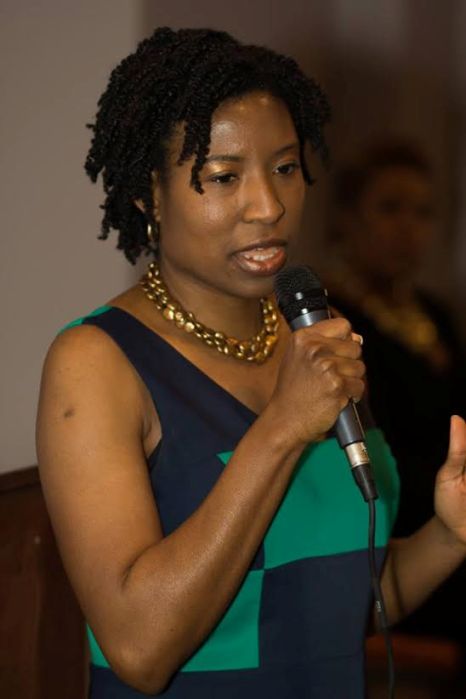
During my third year of law school, I was diagnosed with myasthenia gravis, a rare autoimmune disease which causes muscle weakness throughout the body.
The first symptoms I experienced were blurred and double vision.
Like oil and water, legal books and blurred vision don’t mix very well. My last semester was tough. I juggled studying with strained eyes, having to take multiple breaks to rest while at the same time experimenting with a cocktail of drugs prescribed by my doctors.
The Dean of Academic Affairs at my law school was gracious enough to give me extra time on my finals and allowed me to wear an eye patch to account for my blurred vision. Thankfully I took the exams in a separate room because I definitely didn’t want anyone to see me looking like a pirate!
My next challenge was the bar exam where I was allowed extra time, a large font and again was allowed to wear an eye patch. I was hesitant to tell anyone about my condition and the fact that I got accommodations on the bar.
I didn’t want to be judged as a lesser attorney because of the extra time I received.
I took the same approach when I started working—I didn’t tell anyone.
I remember a more senior attorney trying to explain a provision to me that I couldn’t read. I was listening intently while trying to close one eye so that I could see with the other. (When myasthenics experience blurred or double vision, closing one eye enables them to see clearly out of the other.).
It was a struggle to keep it all in.
I couldn’t drive, had difficulty reading, crossing the street and even dialing a phone number. I kept my illness hidden for a long time, but when I finally started to share, it empowered me.
Here is why I encourage others to share their health stories:
1. Freedom.
Have you ever kept a secret and then having shared it, you feel a deep sense of relief? That’s how I felt after I first revealed my illness. Many people with chronic illnesses and autoimmune diseases fear that they’ll be judged negatively if they open up but that’s not necessarily the case.
In fact, when I began to share my story, I was surprised that people actually showed admiration and respect for me because of everything I had accomplished despite my disease. I wasn’t judged at all. Remember, no one is walking in your shoes except you. If people aren’t supportive and can’t empathize with your situation, they probably don’t need to be in your circle.
2. Building community.
Seven years after I was diagnosed with myasthenia, I was diagnosed with osteoporosis due to the steroids that I was taking. After this diagnosis, I began to share my story more widely. I even opened up at work a little bit. That’s when I discovered a community of healers and resources that ultimately led to my finding what worked for me.
As I continued to share my story, I found other myasthenics! During the period when I suffered in silence, I had never met anyone with myasthenia, but once I opened up, I began to meet people who could relate to what I was going through.
3. Your story could encourage someone else.
There is always someone further along in your journey than you are and you will always be further along than someone else. When you start to share your story you’ll be able to help someone avoid the mistakes that you might have made.
I recently met a young lady on Twitter who also has myasthenia gravis. We connected immediately as we had so much in common—we were diagnosed in our early to mid-twenties and our symptoms got worse after we both had a thymectomy (the removal of
the thymus gland, a form of treatment for myasthenia).
When she experienced blurred vision I recommended some remedies that had helped me. I’ve also been supportive of her while she goes through her ups and downs. This relationship would have never developed had we not shared our stories.
You might prefer to keep your illness private and that is a personal decision, but if you’re keeping your story a secret because you fear being judged, I encourage you to stand in your power and share your story.
Like me, when you share your story, you’ll experience freedom, build community and ultimately, you could encourage someone else.
Author: AmiCietta D. Clarke
Editor: Renée Picard
Photo: Author’s Own











Read 19 comments and reply